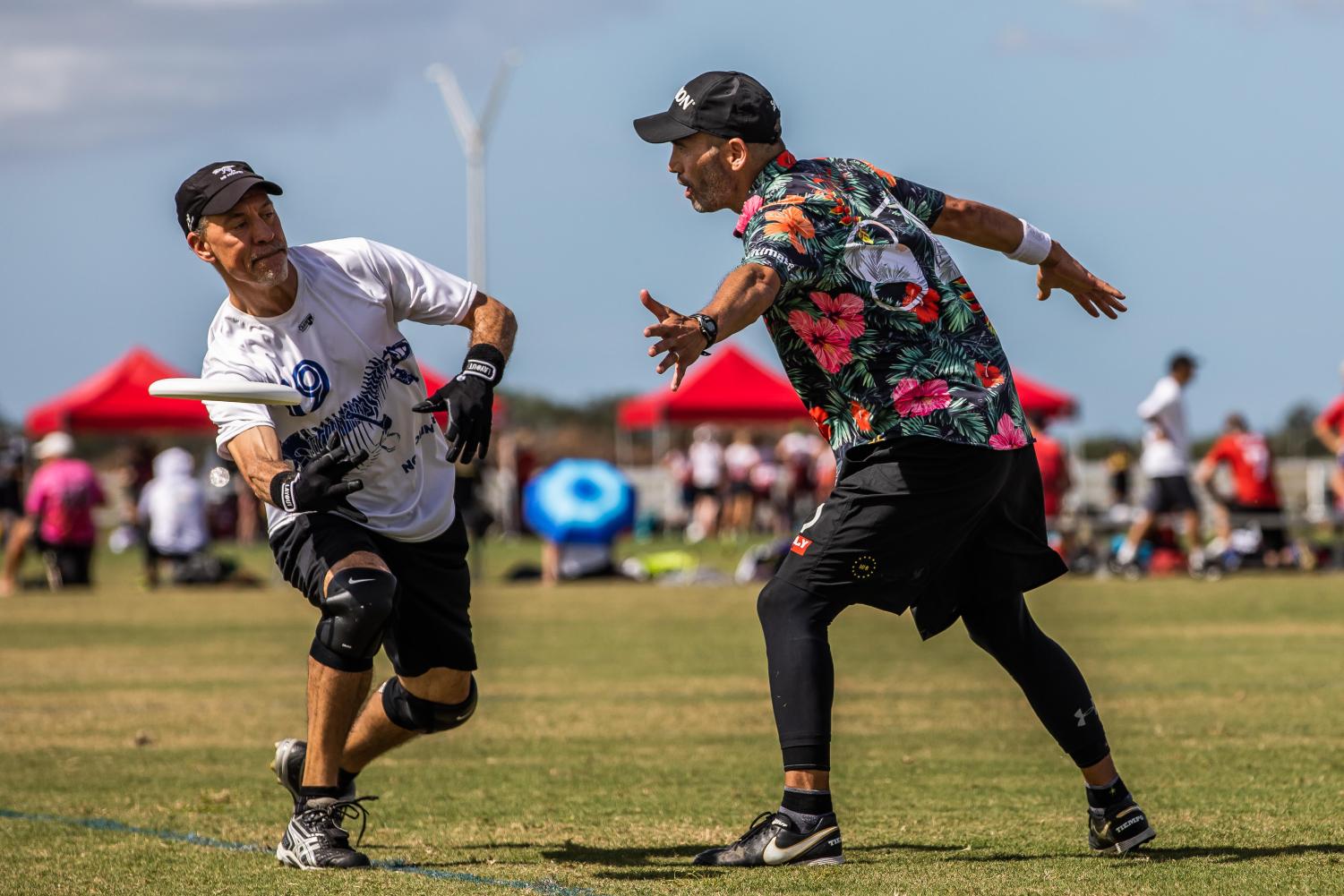Jon Bakija recounts storied ultimate frisbee career
November 30, 2022

Over the years, Professor and Chair of Economics Jon Bakija has played a lot of ultimate frisbee. Through the sport, he met his wife, fostered a love for athletics, and competed in world championships. This is his ultimate frisbee story.
Bakija began playing with frisbees at a young age, tossing one occasionally with his brother and friends. “When I was a kid, it seemed like everybody was throwing frisbees in their backyard in the ’70s,” he said. “When you would buy a Wham-O frisbee, it came with the rules of ultimate in it. So the kids all knew what ultimate was.”
“I thought, ‘This is the best sport ever,’” he continued. “It involved all the things I liked about sports all combined into one, like running, throwing, catching, playing defense… I really enjoyed it.”
Even so, Bakija said that it took him a while to become really involved with frisbee — growing up on Long Island, N.Y., there were not that many opportunities to play. While in college at Wesleyan, he devoted more of his free time to playing guitar in rock bands than frisbee.
Only when Bakija moved to Washington, D.C., after college did he become really involved in ultimate. “I had a lot of friends in D.C. who played, and they encouraged me to come out and play,” he said.
Bakija met his wife by playing ultimate frisbee at this time. “I met my wife playing in an ultimate pickup game on the National Mall in D.C., right by the Washington Monument,” he said. “Ultimate has given me that.”
Moving from D.C. to Ann Arbor, Mich., Bakija enrolled in graduate school at the University of Michigan for economics. “That was the hardest thing I ever did in my life,” he said. “I didn’t exercise at all for a whole year, and my health was in terrible shape.”
After passing his preliminary exams for his graduate degree, Bakija felt he was struggling physically and wanted to change something in his daily routine. “I was like, ‘I better find some commitment device to make myself exercise, or I’m going to die,’” he said. And so, with the encouragement of friends, he turned to ultimate frisbee, eventually playing on and captaining the college team at Michigan, making it to the college national championships where they finished ninth.
“I managed to do all that at the same time as getting my dissertation done and writing a book,” he said. “But I found I felt much better — I was exercising all the time… I was much healthier. I slept better. It was a great experience.”
Despite his success at Michigan, Bakija didn’t have much time to play frisbee competitively when he arrived at the College in 1999. “But then by 2004–05, I was eligible for the Masters Division,” he said. Only players aged 33 or older are eligible to compete in the Masters Divison, which offers a shorter and less intense competitive schedule for older ultimate frisbee enthusiasts. “That was a nice opportunity for me, because the Masters teams were not a big time commitment,” Bakija said. “You could just show up for a couple of weekend tournaments and that was it.”
Playing for a team of Berkshire County and Brattleboro, Vt., residents called “No Country,” named after Cormac McCarthy’s novel No Country for Old Men, Bakija made it to his first club nationals. “That was inspiring, and I really enjoyed it,” he said. “I continued playing Masters, and then a really nice thing is that every time I started getting a little too old for a particular age division, they created a new age division.”
Rising through the ranks of the 33-plus Masters, 40-plus Grand Masters, and now 50-plus Great Grand Masters, Bakija and No Country routinely qualify for and place highly in national tournaments. According to Bakija, their most common finishing place is third. “This summer, we finished fifth [in nationals], which is our lowest finish since 2012,” he noted, stressing that this year they had particularly bad luck.
Every four years, the World Flying Disc Federation hosts a world tournament. With No Country’s second-place finish in the over-50 division two summers ago, they qualified for the newly created over-50 division in the world championships in Limerick, Ireland. “There were enough people that wanted to go, and for me, this was a once-in-a-lifetime thing, so I decided to go,” Bakija said. “We spent a week in Ireland and played 11 games over six days, which I do not recommend for anybody in their fifties.”
“I had a Guinness a day,” he added. “I had a lot of corned beef and cabbage, shepherd’s pie, stuff like that. It was lovely… We ended up finishing third, and that was what was a lot of fun. I don’t think I’ll ever do it again. But it was a great opportunity to get to try that once.”
During the academic year, Bakija plays in local games and travels to a few weekend tournaments, repeatedly being drawn back to the creativity and fun of ultimate frisbee. He recently played in Sarasota, Fla., the weekend of Nov. 5. “I’ve played lots of different sports … but there’s something about throwing a frisbee [that] is just unique,” he said. “You could make it do so many different cool things, and I just love the feeling of trying to make this really hard throw and curving around people and hit precisely where the person is going to catch it. Then it works, and I’m like, ‘That’s a miracle.’”







